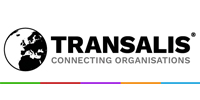May 17, 2019 Guest opinion piece
In a series of blogs from our 2019 healthcare conference sponsors, Ian Moody, associate at Transalis assesses the challenges of connecting systems and information across organisations.
In a world where seamless data flows are helping turn on your lights and deliver goods to your door, why is the healthcare sector struggling to transfer electronic data from one system and organisation to another, when it is stored digitally in both locations? And why are we still so dependent on paper flows?
The difference between using computer-based approaches and paper is that the users of paper do most of the work. Relying on a paper-based approach, the reader must process data, either mentally or on paper, to identify important information or simply rekey it into another computer system. In a computer-to-computer based approach, the computer should relieve data receivers of this effort.
According to the Healthcare Information and Management Systems Society, interoperability “is the ability of different information systems, devices or applications to connect, in a coordinated manner, within and across organisational boundaries to access, exchange and cooperatively use data amongst stakeholders, with the goal of optimising the health of individuals and populations”. But this is still not happening on a regular basis.
So, why is interoperability just as big a problem for procurement and administrative systems and processes? Is it due to the limitations of sending systems, transport mechanisms and the data architecture of receiving systems, compounded by the cost of modifying all of the above to make the process workable? Or is it down to people and politics? What does your experience tell you?
How have the likes of Amazon side-stepped the problem?
Data integration can’t really get much more complicated than the Amazon ecosystem, offering integration with online shopping to smart speakers and doorbells.
I believe the key to achieving this comes down to a capture, connect and secure (CCS) approach, underpinned by standardisation, specifications and cooperation (SSC).
By specifying the requirements for data formats and interfaces to systems, as well as cooperating to make the process actionable, Amazon have achieved something that many healthcare organisations could only dream of. But do you think that all of this integration development work has been done internally by every single company that has integrated with Amazon? Of course not.
So, what are other businesses doing to make this work?
I suppose you could say they are cheating, but not in a dishonest way – they have simply taken an alternative approach by utilising systems and tools designed to eliminate all the pitfalls you may have encountered.
By breaking the problems down into their component parts and working with partners to tackle the issues, it is possible to get data moving and integrated in days or weeks, not months or years!
Our view is that many of the issues appear complicated and varied but, can be simplified to such an extent that they can be easily addressed.
We created applications and services designed to tackle the problems and automated them as much as possible so that they could be implemented relatively quickly and cost effectively.
Transalis connects organisations using the CSS approach, which allows clients to digitise and integrate any business data with numerous other business systems. This provides them an end to end digital process.
No complex software or knowledge is required, allowing highly flexible integration of multiple documents, data sets and standards between multiple networks, systems and trading partners.
Data capture
Transalis DataCapture™ solutions streamline document-based processes through the automated extraction of key data for use in other systems, such as EDI, databases, ERP, SAP etc. Any document (PDF etc), files, images and formats, can be processed and exchanged digitally across the Transalis global digital platform.
With Transalis DataCapture™, not only can the data be captured as part of a fully managed service, it can then be added to a workflow which extends out to involve other organisations. We don’t just capture and store the data, our customers can process, manage, retrieve and share documents digitally across the entire organisation and outside of it with their trading partners.
Connecting systems
Usually, existing systems rely on communicating parties having previously agreed standards, message formats and processes. It is exactly this restriction, complexity, the “integration nightmare” and associated costs when establishing digital communication between partners, that the Transalis OpenEDI™ solution removes.
By default, proprietary systems from different vendors fail to integrate efficiently. Transalis OpenEDI™ technology provides the “glue”, enabling organisations of all sizes, regardless of the IT deployed, to communicate digitally with each other.
Transalis systems integration can be implemented across business areas such as: ERP/accounting systems, order management systems, inventory management, warehouse management system, invoice matching, EPOS, HMRC and clinical.
Secure
The Transalis secure private cloud storage service allows clients to safely store and manage their master data assets, with digitised data exchange.
Transalis understands that security, reliability, availability and performance are crucial to our clients’ business critical processes. We developed our private cloud digital storage service utilising world-class technology from Cisco, 3PAR and VMware to ensure our client data is highly secure and stored safely in ISO-accredited data centres. Our clients also benefit from 100 per cent network uptime guarantee, one hour hardware replacement, and 24/7 and 365 support from cloud experts.
But in a modern world where wireless is becoming the norm, we have recognised before most, that you also need to secure the airspace through which your wireless data moves.
When a 15-year-old with a computer can cause a ‘denial of service’ (DOS) attack for fun, you need to prevent this and other attacks. Our airwave data shield gives you an enterprise-grade defence that quickly and easily identifies, monitors and protects all the connected devices operating in and around your business. With our airwave data shield you know exactly what’s going on and can protect your critical assets from IoT and wireless attacks.
Free NHS PEPPOL Service
Just like the NHS, Transalis provides PEPPOL services “free at the point of service” to hospitals, trusts and NHS Supply Chain suppliers.
Contact us for a free no obligation consultation:
Visit: www.transalis.com
Tel: 0845 123 3746
Int: +44 1978 369 343
Email: sales@transalis.com
About the author

Ian Moody, associate, Transalis
Ian is a Transalis associate specialising in healthcare interoperability. He has more than 25 years’ experience in the healthcare market with a particular emphasis on IT strategy and innovation. Ian has broad experience conceiving and delivering award winning solutions across primary, secondary and community care, having been involved in pioneering the electronic prescription service, electronic discharges and integrating administrative information between providers and commissioners.
About Transalis

Transalis – Connecting Organisations, provides connectivity to an established ecosystem consisting of thousands of companies, in-house and cloud-based systems and applications. More than 1,200 long-standing customers worldwide rely on our Managed Services to power their supply-chain, onboarding and management of trading partners, and related EDI, data, integration and business analytics services.
For more information please visit: www.transalis.com
Related
GS1 UK partners with the Young Foodies to support SME growth